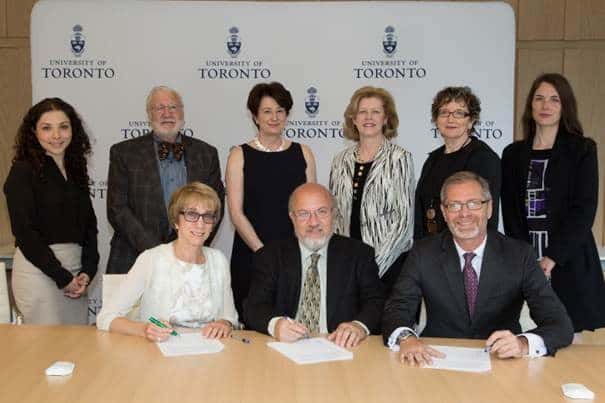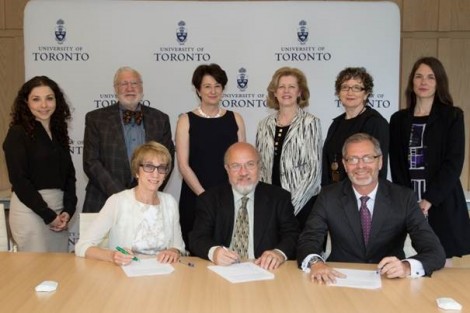March of Dimes Canada (MODC), a community-based charity that focuses on rehabilitation and advocacy for people with physical disabilities, signed a contract of $1.5 million with U of T, providing funding for acquired brain injury research and stroke research and establishing the March of Dimes Canada Early Career Professorship.
The funding is endowed, and will provide a junior faculty member in the Department of Occupational Science and Occupational Therapy with a powerful foundation for exploring interventions and pathways to ameliorate the lives of brain injury survivors. Candidates will hold the MODC professor position for a five-year term, renewable once.
Darina Landa, the Senior Development Officer at the Faculty of Medicine, helped facilitate MODC’s contribution. “In partnership with March of Dimes [Canada] and their ‘living laboratory’ of patients, we will be able to improve programs and therapies for individuals to help them live more productive and fulfilling lives following acquired brain injury,” he said.
.
Deborah Pal, Manager of Quality and Research at MODC, added, “The goal was to develop a partnership with an academic institution which would build on the institution’s status in the research world, its willingness to jointly fundraise to expand the scope of the research and to add value to our programs by accessing its expertise to enhance our own program evaluation capacity.”
There is a prerequisite demand that is not being fulfilled presently. “Even though there is a growing need for information about the life changes to expect after suffering an acquired brain injury and how to gain control and independence in everyday living situations, service availability is both insufficient and inconsistent across Canada,” explained Pal.
“Services need to be tailored to improve the emotional and physical wellbeing of both the survivor and caregiver, and to improve both quality of life and long-term survival,” she added.
The collaboration between U of T and MDOC will help generate new research evidence to inform and guide policies and services for Canadians experiencing brain trauma through strokes or acquired brain injuries.



